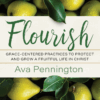Tracy (T.L.) Higley here, posting another marketing lesson I’ve learned from my years in online retail sales. As I’ve mentioned in previous months, I’m currently in the midst of an experimental year, applying principles from my retail business to the marketing of my fiction. If you’ve missed earlier posts, and would like a better explanation of my background and what these posts are about, please see Principles #1-#7 here.
So, on to Principle #8… Find a niche for your books.
Entrepreneur Magazine defines a niche as “A portion of a market that you’ve identified as having some special characteristic and that’s worth marketing to.” Quite frankly, I have built my entire retail business on this principle. In this article, I’ll give examples from both my writing and my retail business, with links provided to give you a better feel for what I’m explaining.
Here’s how niche marketing works, and how it can work for your books:
1. Identify a specific segment of people whom you think would be especially interested in your books. Be very specific. Don’t worry about “leaving out” a large portion of your readers from this niche. That’s the point. You’re going to market to this niche in special ways that don’t apply to all of your target readers.
Example: I started an online retail business several years ago by identifying niches in the craft supply business that weren’t being adequately supplied online. Our first two products, Perler Beads and Quilling Supplies (not quilting, quilling is a paper craft), are given a very small amount of shelf space in local craft stores. People who are interested in these products find the selection disappointing. They turn to the internet, and they find us. I’ve built a successful business by identifying this very small niche in American crafters and offering them hundreds of products for their craft.
You can do this with your books. Brainstorm for niches. If it’s non-fiction, can you identify a very specific group who would be interested in the topic? For example, if your book’s topic were about juggling a career and a family, a niche might be “professional women having their first child after at least ten years in the corporate world.” Do you see how this small niche fits into your larger target market?
I write historical fiction. So do many other authors! How are my books unique, and what is a niche that I can identify? My Seven Wonders Novels are historical suspense, fairly fast-paced, and set in ancient time periods like Egypt, Greece, and Rome. There are several niches I can identify, but the first one I am focusing on is this: homeschooling high school students and their mothers. Do you see how this fits? Homeschoolers are always looking for creative ways to approach history and literature in a combined way. They are likely to enjoy my fast-paced suspense that gives a glimpse into these ancient cultures. And they are likely to appreciate the faith element woven into my books.
2. I’ve already touched on the second step a little bit in the paragraph above. Once you’ve identified your niche, identify their needs. How can your books benefit this group of people?
In my retail business, the unique benefits I offer to my customers are wide selection and easy navigation. By creating entire websites for a single niche such as Quilling, Polymer Clay, or Origami, I am able to carry many products for that niche without bogging down the site navigation, and customers feel as though they’ve stumbled upon a specialized store that focuses only on them and their craft. A welcome discovery for most of them, after feeling that the local stores have largely ignored their needs!
Find the benefit you can offer your niche. It may require some extra work on your part. I am in the process of developing “bonus content” materials for homeschoolers that will complement my fiction. (As an aside, if you are a homeschooling family and this interests you, I would love for you to contact me and give your input!)
3. Take the benefits you can offer your niche, and go forth and find those people! The internet has greatly expanded our ability to connect with niches. There are places (online and offline) where you are likely to find my example of “professional women having their first child after at least ten years in the corporate world” or whatever your niche might be. Figure out where they are, who the influencers are, and how you can connect with them – either online or in person.
If you’re able to identify more than one niche for your books, or perhaps different niches for each book, all the better. Go after them systematically. Don’t be lured into the trap of saying, “but everyone should buy my books.” This mentality often leads to no one buying your books! Niche marketing is really an extension of the concept of branding. Once you’ve figured out your brand, identify the groups of people most likely to be interested and benefitted, and then find ways to meet their needs.
Niche marketing works. I’ve watched it result in loyal customers over my years in retail, and it will work for your books if implemented well.
As a post-script, niche marketing also gets you noticed. I was recently contacted by the Martha Stewart Show to provide the audience giveaway for her segment on Polymer Clay. As a result, Martha mentioned our store on her show, and her website now links to my Polymer Clay Superstore. This free publicity would not have occurred without niche marketing!


Karen Whiting
April 8, 2010 - 08 : 45 : 27I love this concept-will try it for my next two inspirational craft books for girls (once I have a release date).